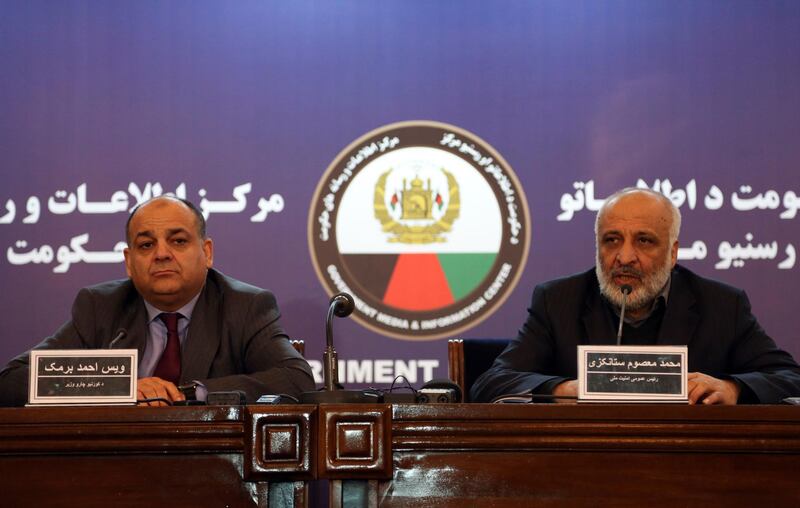Afghanistan has handed "undeniable" evidence to Pakistan that a recent spate of deadly attacks were planned on Pakistani soil, Afghan officials said on Thursday amid growing public anger over their inability to protect civilians.
The attacks, including one of the deadliest bombings in Kabul since the 2001 US invasion, came after Washington's recent decision to freeze nearly $2 billion (Dh7.2bn) in aid to Pakistan because of its alleged support for militant groups including the Afghan Taliban and the affiliated Haqqani Network.
Kabul is on edge after militants stormed a luxury hotel, bombed a crowded street and raided a military compound in the past two weeks.
Afghan authorities have blamed the January 20 attack on the Intercontinental Hotel and Saturday's ambulance bombing on the Haqqani Network, long thought to be linked to Pakistan's shadowy military establishment.
Both attacks have been claimed by the Taliban. The Haqqani leader, Sirajuddin Haqqani, is deputy chief of the Taliban.
Mohammad Stanekzai, the head of Afghanistan's spy agency, said it was clear that the attacks were "planned from across the border".
"We asked Pakistan to hand over the culprits of the attacks in Afghanistan and we shared undeniable evidence that the attacks were planned there," Mr Stanekzai told a news conference, a day after meeting with Pakistani officials in Islamabad.
_______________
Read more:
[ Taliban and ISIL adapt to ramped-up security, create a perfect storm of carnage ]
[ Trump rejects peace talks with Taliban in departure from Afghan strategy ]
[ Why Afghanistan is a war with no end in sight ]
_______________
Afghan interior minister Wais Barmak said the Afghans submitted a list of questions during Wednesday's "constructive" one-hour meeting, asking among other things what action Pakistan will take against Taliban leaders and training centres on their soil.
The Pakistani embassy in Kabul said the information provided by Mr Stanekzai was "being examined for its authenticity".
Pakistani foreign minister Khawaja Asif described the talks with the Afghan delegation as "productive", a ministry statement said.
Kabul, along with Washington, has long accused Islamabad of providing safe haven to leaders of the Taliban and other militant groups.
Pakistan denies the charges, insisting it has eradicated safe havens in the tribal region along the border with Afghanistan. The area is largely inaccessible to foreign journalists.
But Islamabad is widely believed to retain links to the Taliban as a bulwark against arch-nemesis India, which it rivals for influence in Kabul.
US president Donald Trump increased the pressure on Pakistan this year by suspending aid. Some analysts warn there may be no real way to pressure Islamabad, which believes keeping Kabul out of India's orbit is more important than clamping down on cross-border militancy.
Earlier this week a foreign ministry spokesman tweeted that in November 2017 Pakistan had handed over 27 suspected Afghan Taliban or Haqqani Network militants. It did not offer further details.
Anger is growing in Kabul after the latest attacks, which together killed more than 130 people in the capital. Many people expressed their grief and rage on social media.
A number of small protests were held on Thursday, including outside the Pakistani embassy, but few people turned out as the city remains on high alert for further assaults.





